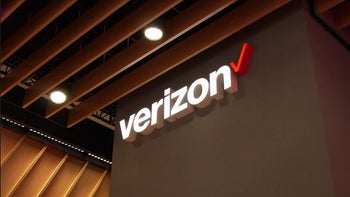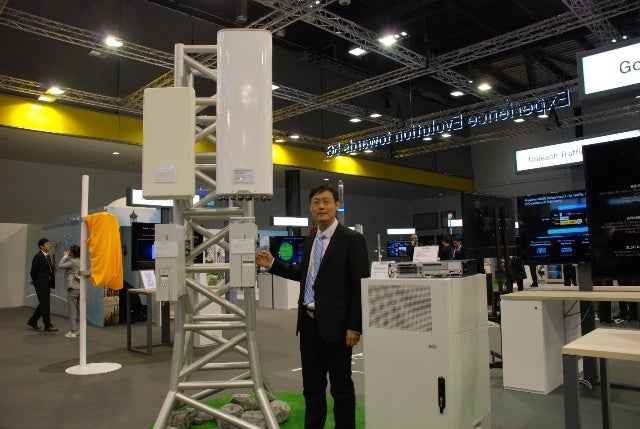Samsung scores huge deal to supply Verizon with 5G networking gear

Samsung and Nokia are both in the running to win a deal to supply Verizon with 5G gear. The carrier is the largest in the U.S. followed by T-Mobile and AT&T. Obviously, it would be a huge achievement for the company that wins the business from Verizon. And today, Bloomberg reports that those close to the situation say that Samsung is that company. The value of the contract is believed to be $6.64 billion.
Samsung reportedly beats out Nokia for $6.64 billion 5G supply contract from Verizon
Huawei is the world's largest supplier of 5G networking gear but is banned from supplying U.S. telecom firms because of its perceived ties to the Communist Chinese government. The Trump administration also warned U.S. allies not to use Huawei's networking equipment to build out their nation's 5G networks. Some countries such as Japan and Australia heeded the warning. The U.K. originally allowed some Huawei networking equipment to be used, but Prime Minister Boris Johnson has seemingly changed his mind and Huawei parts will reportedly be removed.

Huawei is the largest supplier of 5G networking equipment, but the company is banned in the U.S.
Samsung's alleged victory is a surprise of sorts considering that Nokia is a top three global networking equipment supplier. Losing the Verizon business could harm Nokia's ability to spend as much money on new technology as its rivals do, according to Liberum analyst Janardan Menon. Nokia rival Ericsson might be able to take advantage of Samsung's rumored win by increasing its business with Verizon.
A Nokia spokeswoman refused to comment on the supplier's loss, but in a statement, the company said that it still has a relationship with the wireless provider. "We play a critical role in enabling Verizon’s 3G and 4G networks and continue to work with them to accelerate innovation in 5G," the spokeswoman said. "They remain a top three global customer." Verizon, like other carriers, uses multiple suppliers to help it construct its 5G networks. A big part of that spending goes toward the purchase of radios needed for these networks to work.
There had been rumors going back to July that suggested Verizon would be reducing its reliance on Nokia as a primary Radio Access Network (RAN) and would make a switch to Samsung. If those close to the story are correct, that's exactly what occurred. Samsung, the fifth-largest supplier of networking infrastructure in the world, is sure to get a nice boost from this deal with Big Red.
Verizon is building out its 5G network using mmWave 5G spectrum. These high-band signals don't travel that far and are easily blocked by structures. But they do provide high download data speeds. The characteristics of mmWave spectrum explain why Verizon's 5G network is taking longer to build out than T-Mobile and AT&T's low-band 5G networks, both of which are available on a nationwide basis right now. To make up for the slower data speeds that low-band 5G delivers, T-Mobile is counting on the 2.5GHz mid-band spectrum it acquired when it purchased Sprint earlier this year.
While mid-band spectrum is not easy to obtain in the states, Verizon recently opened up its wallet and shelled out $1.9 billion to win mid-band spectrum in the 3.5GHz range. Verizon recently said that it will have its own nationwide 5G network up and running before the end of the year. Acquiring this mid-band spectrum is so important for Verizon, because without it, T-Mobile and AT&T will get to take advantage of the large time advantage they have in offering 5G from coast to coast.
Eventually, all three major U.S. carriers will use variations of the same layer cake strategy. Low-band signals cover most of the U.S.; mid-band spectrum allows rural America to connect to 5G, and the high-band mmWave signals are used in urban environments where they travel for short distances but still cover large numbers of people living and working in the city.













Things that are NOT allowed: